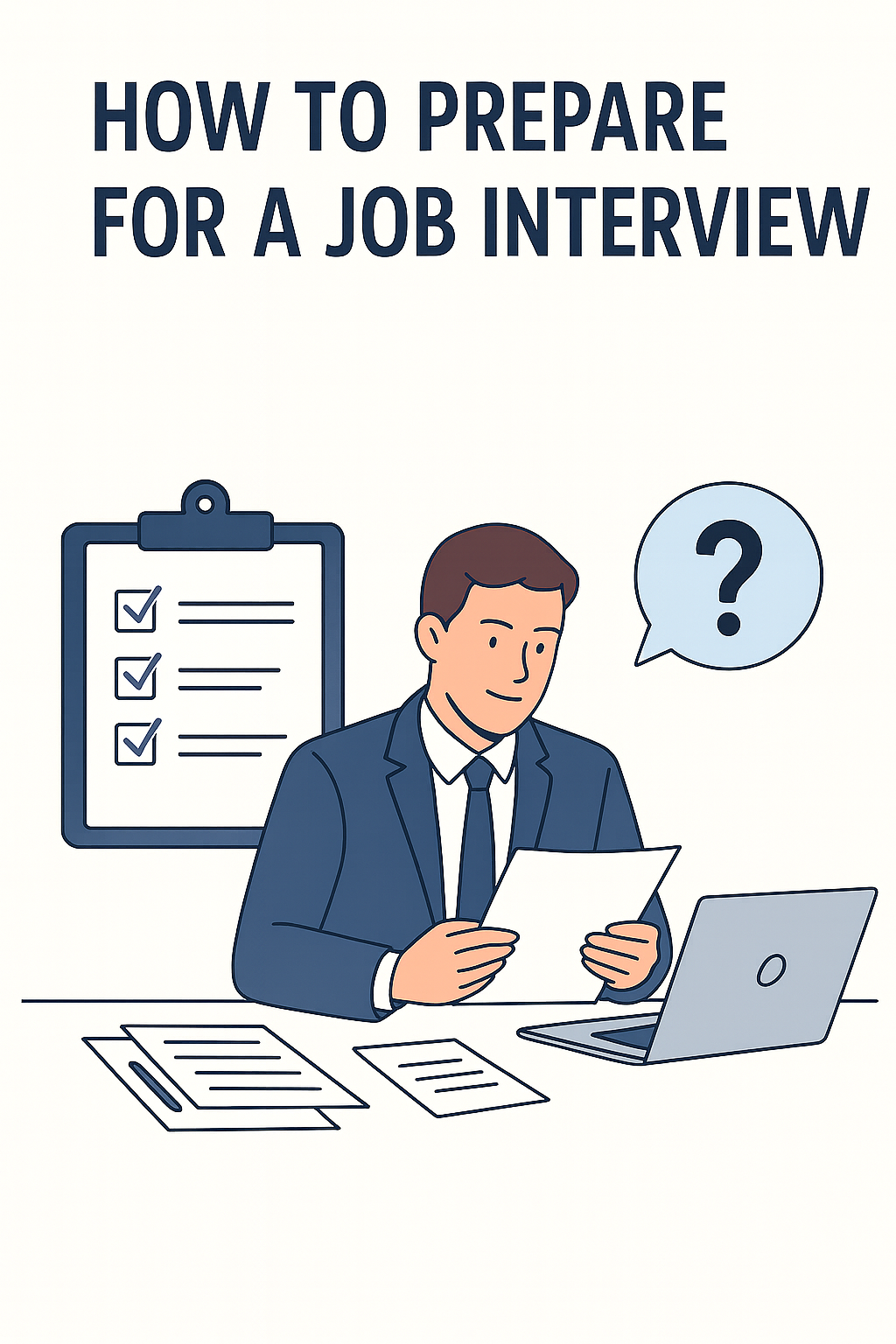The job market today is more competitive, digital, and skills-driven than ever. From AI-screened applications to competency-based interviews, recruiters expect you to be be more prepared, confident, and strategic. Whether you’re applying for your first job or stepping into a top-level leadership role, mastering the right preparation steps can dramatically boost your chances of success.
Below is a simple, modern, and highly effective step-by-step interview preparation guide that helped a lot of job seekers to find jobs in 2025 and beyond.
Step 1: Understand the Job Announcement
Study the job posting carefully. Identify the key requirements, responsibilities, and the exact skills the employer prioritises. Highlight the words and phrases that appear more than once – they often represent the employer’s biggest needs.
Step 2: Research the Company Deeply
Before any interview in, employers expect you to know:
- Their mission, purpose, and values
- Their recent achievements
- Their biggest industry challenges
- Their leadership style and culture
This shows genuine interest and separates prepared candidates from average ones.
Step 3: Learn About Industry Trends
Whether the job is in mining, finance, energy, education, technology, or healthcare, you must understand the current global trends. Employers value candidates who demonstrate awareness of industry realities, future forecasts, and modern challenges.
Step 4: Match Your Experience to the Role
Review the job description again and link it to:
- Past experiences
- Achievements
- Strengths
- Problem-solving examples
Prepare short STAR-format stories (Situation–Task–Action–Result) that clearly show how your experience fits what they want.
Step 5: Prepare Examples That Show Your Value
In recent times, interviewers want proof, not broad statements. Come with:
- Specific projects you led
- Problems you solved
- Measurable results
- Teamwork and leadership examples
Strong, real-life examples create memorable interviews.
Step 6: Practice Your Answers
Record yourself or practise with a friend. Focus on:
- Clear communication
- Confidence
- Avoiding long or unclear answers
- Staying structured and concise
AI interview tools can help simulate real questions and score your responses.
Step 7: Prepare Smart Questions to Ask
Interviews today are now two-way conversations. Good questions show intelligence, initiative, and proper preparation. Examples:
- “What are the biggest priorities for this role in the first 90 days?”
- “How does your organisation measure success for this position?”
- “What skills do your most successful employees have in common?”
My Final Words
Preparing for an interview requires strategy, clarity, and confidence. With these steps, you’ll be fully ready to impress your interviewer and position yourself as the strongest candidate.




